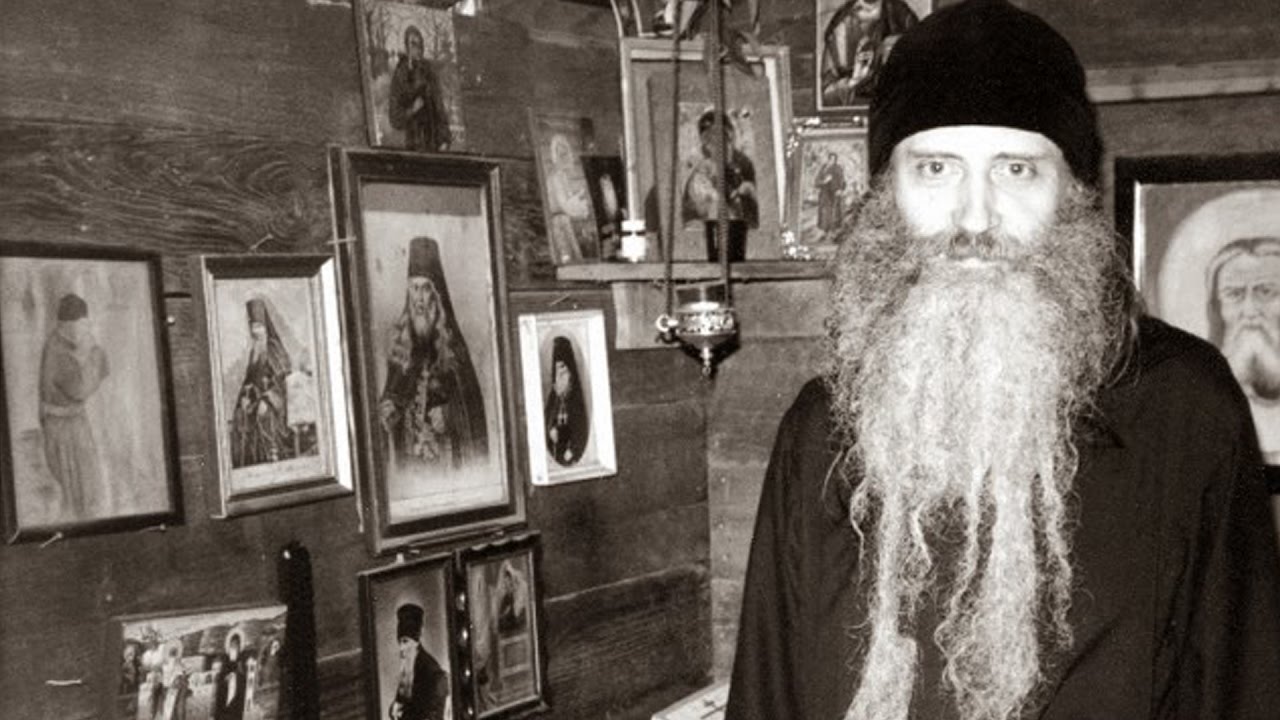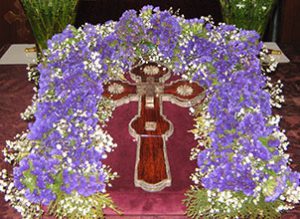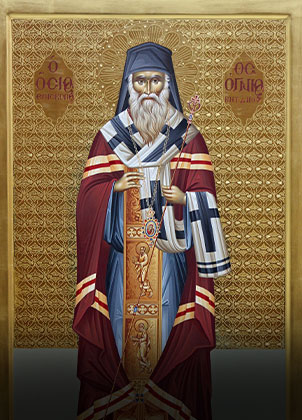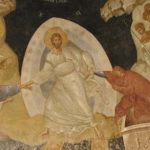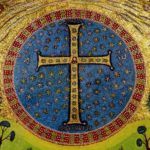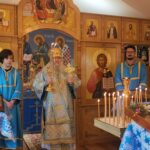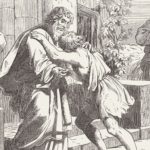Forty years ago, on September 2, 1982, Fr. Seraphim Rose, the famous missionary and defender of Orthodoxy passed away suddenly and untimely. He was not yet fifty years old.
Forty years is an insignificant period of time on a historical scale, but over these four decades the spiritual atmosphere in the world has changed radically, so Fr. Seraphim already appears to us to belong to a past era.
The combination of a deep, penetrating mind, excellent education and spiritual ascetic struggle according to the teachings of the Fathers, brings Fr. Seraphim into line with the great hierarchs of the Church of ancient times. Fr. Seraphim was for his time and still remains the “rule of faith” – the criterion of truth, an indication of the right direction.
The main features of his personality were genuine adherence to truth, sincerity, absence of any self-admiration, pretence, politics and partisanship. In this, he was the complete opposite of the spirit of modern worldly and “political” Orthodoxy.
Father Seraphim, in his instructions to the new converts, contrasted “Orthodoxy of the mind” and “Orthodoxy of the heart.” He urged them to feel the savour and fragrance of Orthodoxy, for which it is necessary to live Orthodoxy, to live in the Church.
Below we offer an excerpt from the report of Fr. Seraphim at St. Herman Youth Conference at Holy Trinity Monastery, Jordanville, NY December 12/25, 1979.
Hieromonk Seraphim (Rose) .
Orthodoxy in America
…………………………
How do we do this? To some extent, anyone who is close to Church and tries to keep the Orthodox discipline, knows the answer to this question: you attend church services, keep the faith, receive Holy Communion, read Orthodox books. But it is possible to do all this almost mechanically, without going deeper into Orthodoxy.
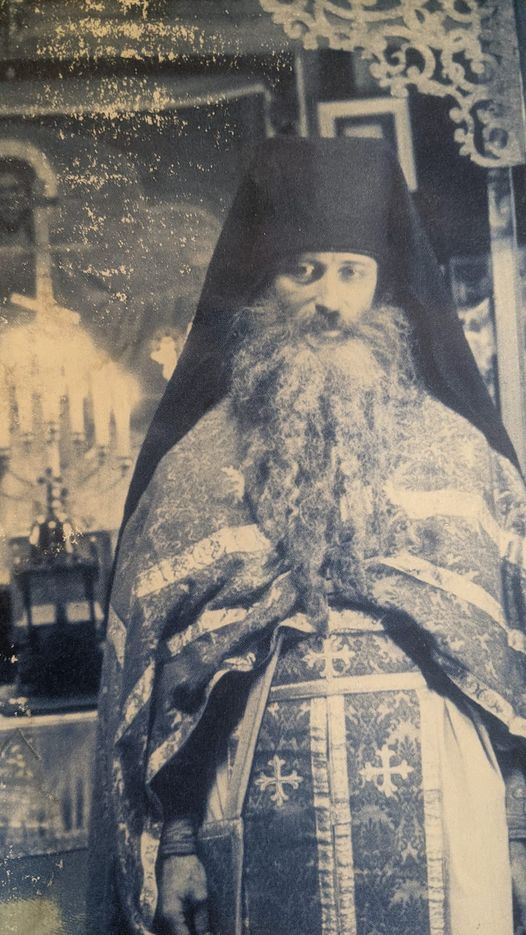
Therefore, first of all we must not merely attend services and keep the outward form of Orthodoxy — we must be aware of what we are doing. If you’ve ever talked to an earnest Protestant or unbeliever who really wants to know what you believe and why you behave the way you do, you will understand how important this awareness is. You can literally save the soul of someone like that if you can begin, even in a little way, to open up to him the depths of Orthodox Christianity. Why do you make the sign of the Cross? Why do you pray to saints? Why do you stand up in church, or make prostrations during Lent? Why are you always singing “Lord, have mercy”? What is Holy Communion? Why do you confess your sins to a priest? Especially today, when we are surrounded by people who don’t know the truth but some of whom are really thirsting for it — we can’t just do these things out of habit; we must be able, as the Apostle Peter says, to give an account of what we believe and do to those outside the Church. There are many ways to become educated in Orthodox Christianity — ask your parish priest, read books, obtain a copy of some of the Church’s services and begin to enter more deeply into their meaning.
Further, we must be not just aware of what our Church teaches and does — we must be trying to saturate ourselves in it. St. Seraphim, in his spiritual instructions, says that the Christian must be “swimming in the law of the Lord” — and this doesn’t mean just making the Church a little part of one’s life; it means going deeper and doing more. Of course, we start a little at a time. If you have been going to church just on Sundays, you can begin to go to the Vigil on Saturday night, and to feast-day services. If you’ve been trying to keep the fast of Great Lent, you can begin to go to more of the very moving services of Lent — the Liturgy of the Presanctified Gifts, the Canon of St. Andrew of Crete, the Praises of the Mother of God.
And another very important thing: You should be reading spiritual books. St. John Chrysostom goes so far as to say that a Christian who doesn’t read spiritual books can’t be saved. Why? Because the world, whose spirit we absorb unconsciously many hours a day, is so strong that we will almost automatically follow its ways unless we are consciously filling our minds and hearts with Christian impressions.
Innumerable books exist for this purpose, both in Russian and English: first of all the Holy Scriptures and Orthodox commentaries on them. Then the Lives of Saints and recent ascetics; “My Life in Christ” by St. John of Kronstadt; “Unseen Warfare” by St. Nikodemos of the Holy Mountain and Bishop Theophan the Recluse; the Spiritual Instructions of St. Abba Dorotheos; the Homilies of St. Macarius the Great; the Orthodox service books, several of which are now in English; the “Lausaic History” and the Lives and Sayings of the Desert Fathers, which are just as fresh now as when uttered 1.500 years ago; Lives of Russia’s New Martyrs; Archbishop Andrew’s “The One Thing Needful.” The Monastery bookstore here can sell you these and many other books. If you have a spark of Christian fervor in you, you will be surprised how much your soul will be refreshed by reading books like these; they will give you a taste of that other-worldliness without which the Christian soul withers and dies, especially in our worldly times.
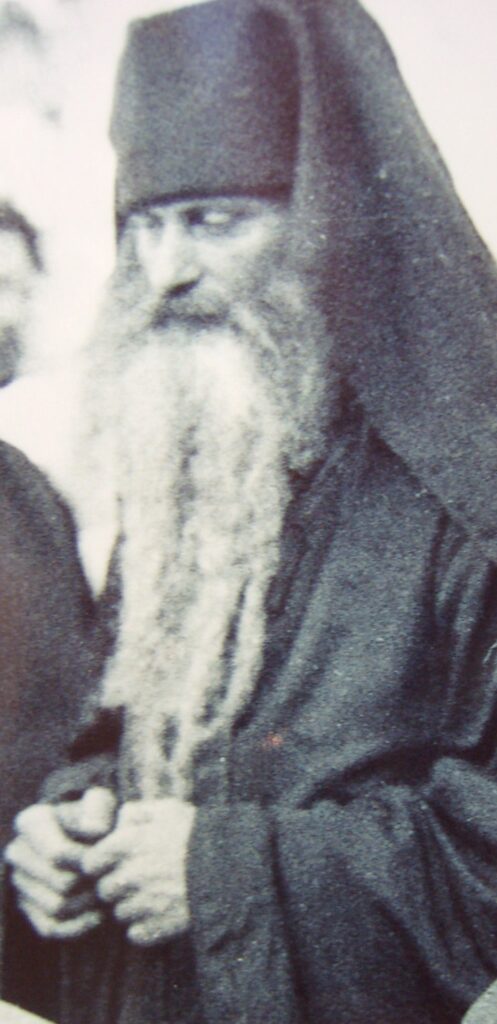
And of course, a central part of this going deeper into Orthodoxy are the Church’s medicines of confession and Holy Communion, which you should participate in as fully as possible, according to the counsel of your spiritual father. Then there are the daily opportunities for expressing Christian love — giving alms, visiting the sick, helping those in need. All of these means, if one’s heart is in them, are what help to make the Christian different from the world, because they lift his eyes above this passing world to the heavenly Kingdom which is our goal as Christians. These are the positive means of going deeper into Orthodoxy. There are, of course, negative things you will have to fight against as well. Once you become aware that there is an unseen warfare going on, that our Christianity is constantly being attacked by our unseen enemies, especially through the spirit of worldliness, you will begin to see also the negative things in your life that have to be changed. But with a firm understanding of the positive, inspiring side of Christian life, this struggle against negative faults and habits becomes much easier. Part of our awareness of what Orthodoxy is involves knowing that this world is largely the domain of the devil, the prince of this world, who acts on our souls and hearts chiefly by the love of this passing world. But if we are struggling in an Orthodox way, we are receiving the grace of God which is the only thing that can raise us above this world that lies in evil.
Now I’d like to say a word about a few of the pitfalls into which one can fall once one has begun to take up the path of fervent Orthodox Christianity. One might think, hearing about our faith; that all one has to do is to become on fire with zeal for it, and then one can enter the Heavenly Kingdom. But it so happens that we have an enemy — the devil — and as soon as we become fervent, the enemy comes and begins to fight. I’ll speak here of three of the ways in which he attacks, and this will also help us to define a little more precisely what is the true Christianity of Orthodoxy.
The first pitfall occurs when one begins to read Orthodox books, is inspired by them, but does not apply their principles properly to one’s own life. Bishop Ignatius Brianchaninov, one of the great Russian Fathers of the 19th century — a beacon light for modern times, together with his contemporary, Bishop Theophan the Recluse — wrote a special book, called in English “The Arena,” for the monastics of the last times — our times — where he gives advice which all Orthodox strugglers of our times should heed. In this book he warns beginners on the monastic path not to become so exalted by some inspiring writings of the Holy Fathers or even by the Lives of Saints, that one forms “an impossible dream of a perfect life vividly and alluringly in his imagination” and ceases to do the humble Christian tasks right in front of him (ch. 10).
This is a basic pitfall. One can think about living in the desert, while right in front of one there may be an excellent opportunity to practice Christianity — someone may be in trouble, and with our high ideas we may not even think of helping him. Or, with these same high ideas in our mind, we may begin to criticize others and be lacking in the basic Christian love without which all our high ideas are empty. Through experience we must learn how to apply the writings of the Holy Fathers and the Scripture itself to our own level and circumstances.
Our spiritual life is not something bookish or that follows formulas. Everything we learn has to become part of our life and something natural to us. We can be reading about hesychasm and the Jesus Prayer, for example, and begin to say it ourselves — and still be blind to our own passions and unresponsive to a person in need right in front of us, not seeing that this is a test of our Christianity that comes at a more basic level than saying the Jesus Prayer. We have to read Orthodox books that are on our level — the ones I mentioned above are more for beginners — and we have to read them very humbly, realizing the nature of our times when worldly influences are present everywhere and affect our thinking even when we aren’t aware of it, and never dreaming that we are on any level but that of raw beginners.
Bound up with this is a disease of today’s Orthodox Christians which can be deadly: the “correctness disease.” In a way this is a natural temptation to anyone who has just awakened to Christian faith and to spiritual life — the more one finds out about Christian doctrine and practice, the more one discovers how many “mistakes” one has been making up to now, and one’s natural desire is to be “correct.” This is praiseworthy, although in the beginning one is probably going to be too artificially “strict” and make many new mistakes out of pride (to which we are constantly blind). If you are critical of others, self-confident about your own correctness, eager to quote canons to prove someone else is wrong, constantly “knowing better” than others — you have the germs of the “correctness disease.” These are signs of immaturity in spiritual life, and often one outgrows them if one is living a normal spiritual life.
But especially in our days, the spirit of worldliness is so strong, and there is obviously so much wrong in our church life — that there is a strong temptation to make “correctness” a way of life, to get stuck in it. And this is not only a disease of converts; one of the best bishops of the Old Calendar Greeks, Bishop Cyprian of Sts. Cyprian and Justina Monastery near Athens, has written that this spirit of “correctness” has already done untold damage to Orthodoxy in Greece, causing fights and schisms one after the other. Sometimes one’s zeal for “Orthodoxy” (in quotes) can be so excessive that it produces a situation similar to that which caused an old Russian woman to remark of an enthusiastic American convert “Well, he’s certainly Orthodox all right — but is he a Christian?“
To be “Orthodox but not Christian” is a state that has a particular name in Christian language: it means to be a pharisee, to be so bogged down in the letter of the Church’s laws that one loses the spirit that gives them life, the spirit of true Christianity. In saying this my aim is not to be critical or to point to anyone in particular — we all suffer from this — but only to point out a pitfall which can cause one to fail to take advantage of the riches which the Orthodox Church provides for our salvation, even in these evil times.
Even when it is not fanatical, this spirit of “correctness” for its own sake turns out to be fruitless. As an example, I can tell you of a very good friend of ours, one of the zealot fathers of Mt. Athos. He is a “moderate” zealot, in that he recognizes the grace of New Calendar sacraments, accepts the blessings of priests of our Church, and the like; but he is absolutely strict when it comes to applying the basic Zealot principle, not to have communion not only with bishops whose teaching departs from Orthodox truth, such as the Patriarch of Constantinople, and not only with anyone who has communion with him, but with anyone who has communion with anyone who in any remote way has communion with him. Such “purity” is so difficult to attain in our days (our whole Russian Church Abroad, for example, is “tainted” in his eyes by some measure of communion with the other Orthodox Churches) that he is in communion with only his own priest and ten other monks in his group on the Holy Mountain; all of the rest of the Orthodox Church is not “pure.”
Perhaps there are only ten or twelve people left in the world who are perfectly “strict” and “pure” in their Orthodoxy — this I really don’t know; but it simply cannot be that there are really only ten or twelve Orthodox Christians left in the world with whom one can have true oneness of faith, expressed in common communion. I think that you can see that there is some kind of spiritual dead-end here; even if we had to believe such a narrow view of Orthodoxy according to the letter, our believing Christian heart would rebel against it. We cannot really live by such strictness; we must somehow be less “correct” and closer to the heart of Orthodox Christianity.

In smaller ways, too, we can get carried away with “correctness’:’ we can like well-done Byzantine icons (which is a good thing), but we go too far if we are disdainful of the more modern style icons which are still in many of our churches. The same goes for church singing, architecture, the following of correct rules of fasting, of kneeling in church, etc. While striving to be as correct as we can, we must also remember that these things belong to the outward side of our Orthodox faith, and they are good only if they are used in the right spirit of the true Christianity St. Tikhon talks about. Vladimir Soloviev, in his Short Story of Antichrist, ingeniously suggests that Antichrist, in order to attract Orthodox conservatives, will open a museum of all Christian antiquities. Perhaps the very images of Antichrist himself (Apoc. 13:14) will be in good Byzantine style — this should be a sobering thought for us.
The third pitfall I’ll just mention, because it doesn’t seem to be a problem in our Church. This is the “charismatic” movement which imagines it is acquiring the Holy Spirit by various Protestant techniques. This movement is filled with such an obvious spirit of inflated self-esteem and has so many of the characteristics of what Orthodox writers describe as spiritual deception (prelest) that I won’t dwell on it here. The true Orthodox spirit is something very different.
………………………………..
Orthodoxy in America PDF (full text)

